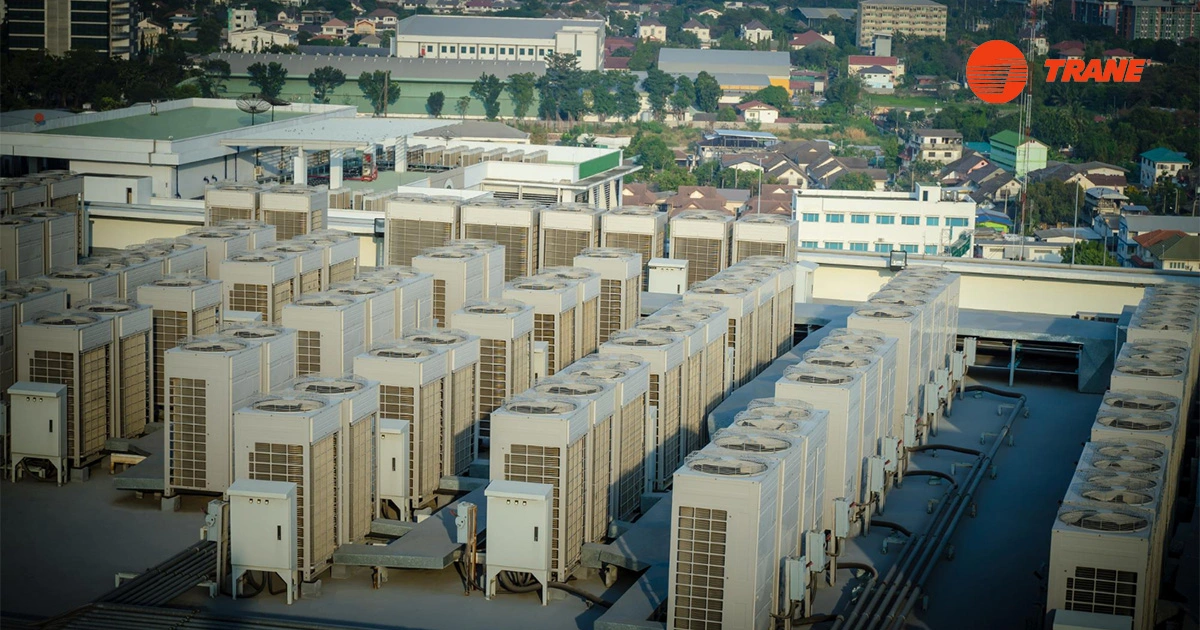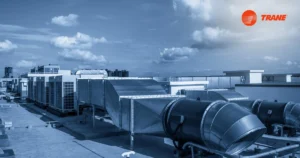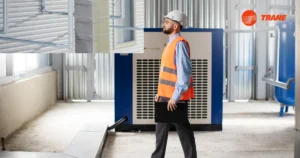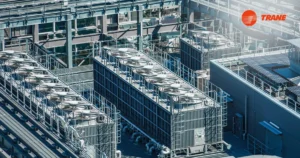Qatar’s rapid urbanisation, fuelled by large-scale infrastructure projects and sustained economic growth, has brought with it increasing energy demands. Nowhere is this more evident than in the area of cooling, where long summers and high humidity create year-round reliance on efficient systems. For many businesses and developers, the air-cooled chiller has become a practical solution to balance performance with sustainability, providing a flexible way to address rising demands while supporting the country’s growth trajectory.
The Growing Challenge of Urban Cooling
As Doha and other cities expand, new commercial centres, residential towers, and entertainment complexes place significant pressure on the power grid. Cooling alone accounts for a large share of Qatar’s electricity consumption, especially during peak summer months. Without effective strategies to manage this demand, businesses risk higher costs, grid instability, and environmental inefficiencies. Urban growth, while positive, has made reliable cooling not just an operational requirement but a national priority.
Why the Air Cooled Chiller Matters
Unlike water-cooled systems, which require substantial water supply and additional infrastructure, air cooled chillers are more compact and flexible to install. In regions like Qatar where water is scarce, this technology provides a vital alternative that reduces reliance on natural resources while maintaining high levels of performance. Their modular nature also means they can be deployed quickly across new developments, making them ideal for fast-growing cities.
Addressing Energy Efficiency Goals
Qatar’s National Vision 2030 places sustainability and energy efficiency at the forefront of development. Air cooled chillers align with these goals by using advanced refrigerants and optimised compressor technologies that consume less energy. For developers, this translates into reduced operational costs and a lower carbon footprint, ensuring compliance with evolving environmental regulations and aligning with global best practices.
Applications Across Expanding Cities
The utility of air cooled chillers extends across multiple sectors within Qatar’s urban landscape:
- Commercial Developments: Office towers and retail spaces require flexible systems that deliver consistent comfort without excessive water infrastructure.
- Residential Complexes: Modern apartment blocks benefit from chillers that are space-efficient and easy to maintain.
- Hospitality and Events: Hotels, stadiums, and cultural venues depend on systems that deliver comfort while supporting fluctuating occupancy levels.
- Healthcare and Education: Facilities need reliable cooling to maintain strict temperature standards for patients, staff, and students.
These examples demonstrate how urban growth relies on cooling technologies that adapt seamlessly to diverse requirements.
Reducing Pressure on Qatar’s Grid
One of the most pressing concerns for Qatar’s expanding cities is the strain on electricity infrastructure during peak summer months. Air cooled chillers help ease this pressure by offering high-efficiency systems that consume less power per cooling output. Combined with modern controls and monitoring, they allow businesses to manage demand intelligently, preventing excessive grid reliance and supporting overall energy stability.
Cost Savings and Operational Flexibility
Operational costs are a key consideration for businesses facing long cooling seasons. Air cooled chillers offer a cost-effective balance, as they avoid the added expense of water treatment and pumping systems required by water-cooled alternatives. Their design also means faster installation and easier maintenance, minimising downtime. For developers under pressure to deliver projects quickly, this flexibility adds significant value.
Supporting Qatar’s Long-Term Sustainability
Beyond immediate savings, adopting efficient cooling systems contributes to Qatar’s wider sustainability agenda. Reducing water usage, cutting energy demand, and improving system reliability are essential steps towards lowering environmental impact. Air cooled chillers play a pivotal role in this shift, enabling businesses to meet cooling needs while demonstrating commitment to corporate social responsibility.
Conclusion
As Qatar’s cities continue to grow, addressing energy demand is no longer optional but essential to sustaining progress. Air cooled chillers provide a practical and sustainable pathway for businesses to reduce consumption, protect resources, and ensure reliable performance. For organisations seeking scalable and dependable solutions in the country’s harsh climate, Trane offers industry-leading expertise and a full portfolio of technologies tailored to Qatar’s unique challenges. For those looking to take advantage of flexible solutions that minimise disruption and deliver results, a temporary chiller rental provides the added assurance of adaptability without long-term capital investment.




